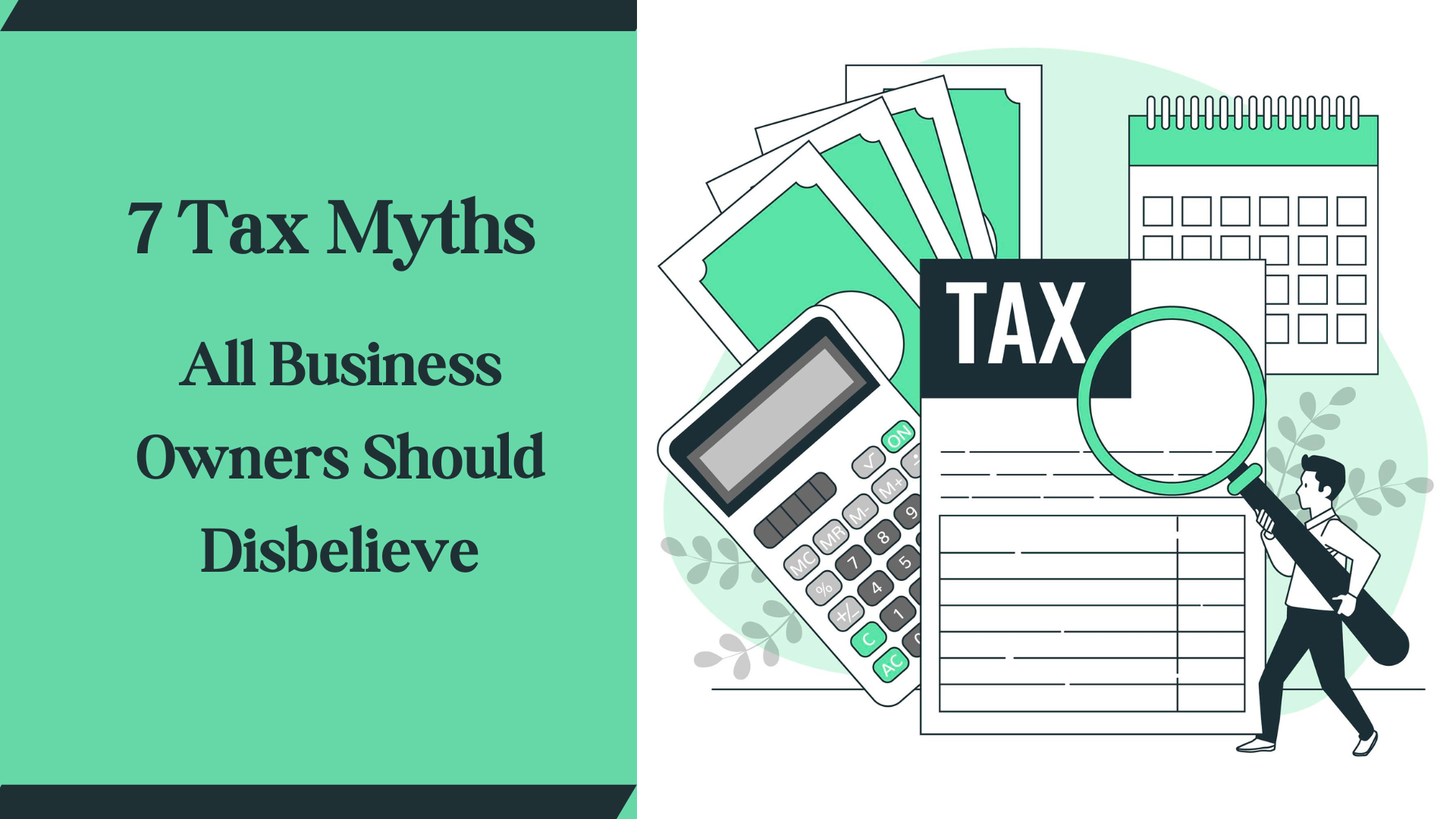
7 Tax Myths All Business Owners Should Disbelieve
Webmaster • February 13th, 2025
For company owners, tax season may be a stressful time, particularly with all the false information out there. Unknowingly, a lot of business owners base their financial choices on out-of-date or inaccurate tax advice, which may result in expensive errors. You may avoid possible legal issues, save money, and save time by knowing the facts about taxes. We’ll dispel seven widespread tax fallacies in this blog post that every company owner need to be aware of.
One of the most common misunderstandings is that you don’t need to worry about taxes if your company isn’t profitable. Other tax requirements still exist even if income tax is based on profit, such as payroll taxes (if you have employees).
You may still need to submit a tax return and pay some taxes even if you declare a loss.
Many entrepreneurs believe that all of their business-related expenses are tax deductible. There are restrictions even though the IRS allows permit deductions for regular and essential business expenditures. Personal meals and entertainment are among the costs that are often misunderstood as being completely deductible.
Make sure you’re only deducting allowable company costs by consulting a tax expert.
Owner-operators of corporations often believe they don’t need to pay themselves if the business isn’t profitable. However, failing to pay yourself reasonable wages may have tax implications. Sole proprietors and members of limited liability companies actively engaged in trade or business typically pay self-employment tax on their profits.; S-corporation owners are required to pay themselves a “reasonable salary” prior to receiving distributions. Failing to do so, may trigger an IRS audit.
A certified public accountant can help identify the most tax-efficient way to compensate yourself while ensuring compliance.
Some entrepreneurs believe that the IRS overlooks small businesses. However, audits frequently focus on smaller firms, especially those with large cash transactions or significant deductions. Here are some warning signs that could trigger an audit:
You should maintain accurate books and records in case of an audit so you can defend yourself.
Incorporating your business as an LLC, S-Corp, or C-Corp may provide tax advantages, but it isn’t always the optimal choice. Each structure has different tax treatment options:
Consult with a certified public accountant (CPA) before selecting a business structure to determine which option will yield the most tax benefits for your situation.
Filing a tax extension does not grant you additional time to pay your taxes; it only extends the deadline for submitting your return. The IRS requires payment by the original due date, typically April 15 for individuals, if you owe taxes. Failing to pay on time can lead to late payment penalties, interest on overdue taxes, and potential IRS collection actions.
While an extension can be useful if you need extra time to file, ensure you estimate and pay any taxes owed to avoid penalties.
While accounting software like Xero and QuickBooks can help you manage your finances, they cannot replace expert tax advice. A certified public accountant can identify tax-saving opportunities, ensure compliance with ever-changing tax regulations, represent you during an IRS audit, and provide strategic planning for long-term financial success. Relying solely on software may result in misclassified transactions, missed deductions, and compliance issues.
Business owners can save money and avoid pitfalls by understanding tax regulations and steering clear of common misconceptions. It’s wise to seek professional guidance rather than relying on rumors and speculation.
At Basta CPA, we specialize in helping San Francisco businesses navigate complex tax laws to maximize savings. Our chief CPA, Mr. Samy Basta, has years of experience and offers tailored financial planning and tax solutions to ensure your business thrives.
Schedule an appointment with Samy Basta, CPA today to avoid overpaying due to tax misconceptions!

Samy Basta brings you more than 20 years experience in tax, financial, and business consulting to his role as founder of Basta & Company. His focus is primarily strategic business planning, empowering clients to set priorities, focus energy and resources, and strengthen operations. In addition, Samy and his firm provide strategic counsel, and technical insight, on a wide range of needs, including tax saving strategies, tax return compliance, as well as choice of entity.